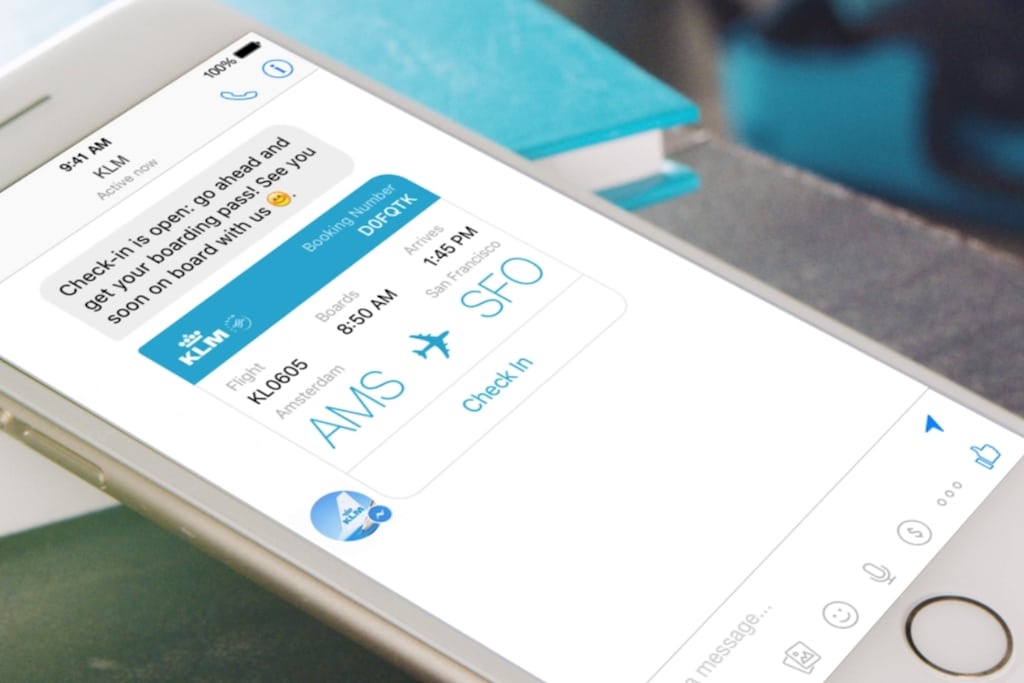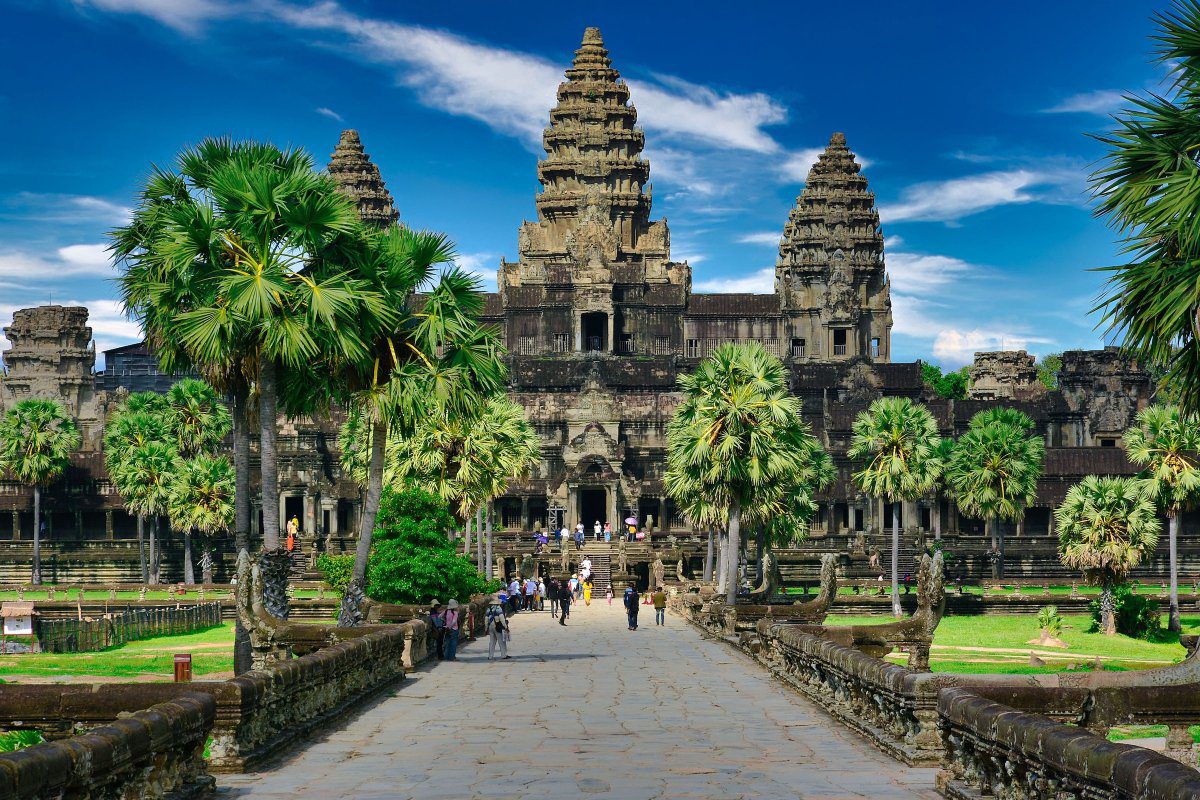Airlines Turn to Private Messaging to Avoid Social Media Blowups

Skift Take
Nothing has made airline social media managers more nervous over the past decade than a Twitter rant from a customer with hundreds of thousands or even millions of followers.
But even the most angry travelers are more often taking complaints directly to airlines and bypassing public forums, according to Joshua March, co-founder and CEO of Conversocial, a firm that helps brands craft social media strategies. When airlines respond promptly to private messages on Twitter, Facebook Messenger, WhatsApp, and other channels, customers often no longer see the need to vent publicly, he said.
"If you look at what customers want, they want a quick and easy response," he said. "Tweeting publicly was a way to get attention. But people don't want to complain publicly if they are going to get a response relatively quickly."
As recently as a couple of years ago, airline social media teams were most focused on monitoring public forums for anything that might go viral. They still do — no airline wants to see a celebrity tweet something nasty — but 2018, March said, will be the year of the private message. At some carriers, the same social media teams that monitor nasty public messages respond to chat queries, while at others they're handled by agents who once took phone calls.
This direct communication is a good trend for airlines. At least that's the conclusion of Conversocial, which on Tuesday released a report [embedded below] detailing the current state of airline social media strategies. The company works with many carriers, including Alaska Airlines, Ryanair, and Icelandair, but for its study it mostly used publicly available data for 20 U.S., European, and Middle Eastern airlines, some of whom are not clients.
The study mostly examined the time it took airlines to respond to public queries everyone can see. But in its discussion of the results, Conversocial also touched on how it expects private messaging will evolve.
Here are some of Conversocial's findings:
- For all public tweets, North American airlines were considerably faster to respond than carriers in Europe and the Middle East. On average, North American carriers took about 20 minutes to respond, while airlines in Europe and the Middle East took about one hour and 40 minutes.
- In North America, JetBlue had the fastest average response time, at four minutes 50 seconds. United Airlines had the worst, at one hour and 34 minutes. Elsewhere, Lufthansa was fastest to respond at nine minutes, 15 seconds, though Lufthansa only replies to about two tweets an hour. Slowest in the study was Finnair, with an average response time of more than five hours.
- Airlines don't respond to many tweets. In the United States, American Airlines was most responsive, replying to about a third of public mentions. Elsewhere, Etihad replies to the most tweets, at about 50 percent.
- For the study, Conversocial crunched private messaging data from three of its airline clients between March and August of 2017. On Facebook Messenger, the number of direct messages received by the three airlines more than doubled compared to the previous six months, while on Twitter direct messaging was up 50 percent. In comparison, March said, "public social media grew only a bit."
With more customers preferring private messaging, the report argued airlines cannot "just cruise on autopilot when it comes to servicing their social flyers." Instead, it said, airlines need to promote private mobile messaging as a way to resolve issue.
In an interview, March said airlines can take about five minutes to respond to a private message — or about as long as a passenger might expect to wait before a friend responds to a text message. "If you don't respond fast enough they are just going to choose a different channel," March said.
Ideally, he said, responses should be tailored for each customer, though sometimes it makes sense for an airline to use an automated system for the first or second response. If a customer is asking how much free baggage the airline permits, perhaps a human does not need to answer.
March said airline agents also must solve the passenger's specific problem — not just deflect the issue, or ask the passenger to call a 1-800 number. At some point, bots could rebook passengers, but that's still generally not possible, so all but the most basic queries require a human touch.
The focus on private messaging makes sense, but only to a point, said Brian Gross, vice president for digital innovation at Aeromexico, which is not a Conversocial client. He said "viral crises" still terrorize airline social media teams, who, if given proper resources, can keep them from blowing up.
But public and private social media can be tricky, he said, because customers often want what they don't deserve. An agent should probably know the traveler's value to the company before responding, he said in an email.
"How liberal are you in giving the customer what they are asking for, which is often against the terms of their ticket (especially inexpensive fares) — e.g. they arrived late to check in and are angry at a change fee and new higher fare?" he asked. "Do you accommodate them? It’s not viable as an airline to do so with fickle shoppers who switch airlines for one peso as the market drives base fares ever downwards, but for loyal high lifetime value customers it is beneficial to do so."
Here are the top 10 most responsive airlines in North America, Europe and the Middle East, according to Conversocial.
| Airline | Average Response Time * | Average Responses Per Hour | Average Mentions Per Hour |
|---|---|---|---|
| JetBlue | 4:50 | 6.5 | 27.1 |
| Virgin America | 4:56 | 1.3 | 4.9 |
| Spirit | 4:56 | 2.6 | 9.6 |
| Alaska | 5:10 | 4 | 22.5 |
| Southwest | 6:36 | 13 | 47.9 |
| Air Canada | 9:01 | 1.8 | 17.2 |
| Lufthansa | 9:15 | 2 | 13.4 |
| WestJet | 10:47 | 2.3 | 11.9 |
| Etihad | 11:21 | 1 | 1.7 |
| Ryanair | 16:23 | 8.1 | 32.1 |
| * In minutes and seconds |
And here is the full report:
[gview file="https://skift.com/wp-content/uploads/2018/01/Airline-Benchmark-2017.pdf"]




